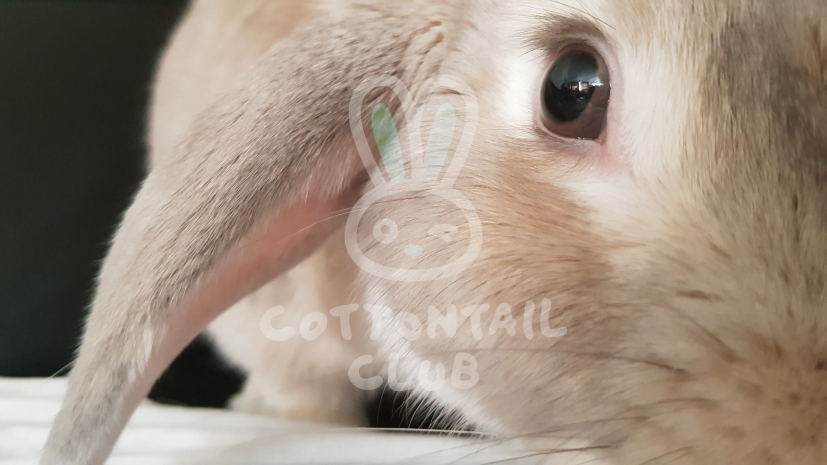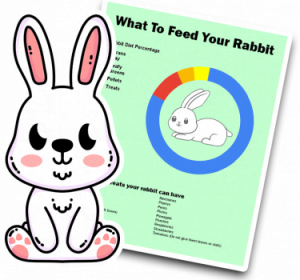
Certain rabbit breeds‘ most fascinating features are their striking red eyes. Have you ever wondered why some rabbits have red eyes? In this article, we will explore the reasons behind this unique characteristic.
Rabbits that possess red eyes are experiencing a condition known as albinism. This genetic anomaly results in the absence of coloration in both their fur and eyes. Albinos exhibit heightened sensitivity to sunlight. However, apart from this, they are indistinguishable from other rabbit breeds. The condition of albinism doesn’t inherently cause any extra health complications.
White bunnies are known for their cute and fluffy appearance, but one thing that often surprises people is their bright red eyes.
While it may seem odd, there is a scientific reason for this unique characteristic. This article will explore why white bunnies have red eyes and what makes them so special.

Before we dive into the specifics of why white bunnies have red eyes, let’s take a brief look at the anatomy of the eye.
The eye is a complex organ that is made up of several different parts, including the iris, lens, and retina. The iris is the colored part of the eye that controls the amount of light that enters. The lens is responsible for focusing the light onto the retina, which is where images are formed.
Before delving into the reasons behind red eyes in rabbits, it’s essential to understand how rabbit eye color genetics work. The color of a rabbit’s eyes is determined by the amount of pigmentation in the iris, controlled by a specific gene.
The gene that controls eye color in rabbits is called the OCA2 gene, which produces the protein responsible for melanin production.
Melanin is the pigment that colors humans’ and animals’ skin, hair, and eyes. The amount of melanin produced determines the intensity of the eye color.
For example, rabbits with high melanin production will have dark brown eyes, while those with low melanin production will have blue or gray eyes.
One of the reasons why some rabbits have red eyes is due to their coat color. White rabbits with red eyes are a classic example.
These rabbits have a genetic mutation that causes a lack of melanin production in their skin and eyes. As a result, their eyes appear red because of the blood vessels in the retina that are visible through the iris.
White rabbits with red eyes are often called “albinos,” but this is technically incorrect. True albinos lack all pigment in their skin, hair, and eyes, while white rabbits with red eyes still have some pigment in their skin and hair. Therefore, the correct term for these rabbits is “leucistic.”
Another factor that can influence a rabbit’s eye color is age. Some rabbits are born with blue eyes, but as they mature, the amount of melanin in their eyes increases, causing their eye color to change.
This process is known as “eye color development.” For example, a rabbit with blue eyes at birth may develop brown eyes as they age.
No, most rabbits don’t have red eyes! Only white rabbits with the albinism gene have red eyes. It’s important to note that not all albino rabbits have red eyes. Some have blue eyes. They still have the albinism gene, but they also have a gene that gives their eyes a blue color.
All albino rabbits will have some white on them due to the lack of pigment. However, not all albino rabbits will be completely white. For example, they can have darker coloring on the tips of their ears or paws.

So, which rabbits can have the gene for albinism that gives them those striking red eyes? Well, there are a lot of different breeds that can have the albino gene, but it depends on their breeding.
Only three breeds always have white fur and red eyes: the Himalayan, Florida White, and Californian. The Florida White is entirely white all over with red eyes. The Himalayan and Californians are white and have dark patches around their nose, ears, feet, and tail, but they still have the albino gene.
The table below details the other breeds that can sometimes have the albino gene, depending on their breeding.
Rabbit Breeds that do have the Albino Gene:
Rabbit Breeds which can have the Albino Gene
Rabbits who don’t have the albino gene won’t have red eyes. Instead, they can have a range of eye colors depending on their breed and genes.
Rabbits can have the following colored eyes:

By entering your email address you agree to receive emails from Cottontailclub. We'll respect your privacy and you can unsubscribe at any time.